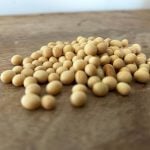Dry soil conditions this fall offer both opportunities and challenges for fall nitrogen application. The risk and success of such operations depend on soil characteristics, weather conditions and machinery operations. Opportunities Usually growers are advised to delay application as long as possible in the fall so soils are cool, in order to prevent or delay



